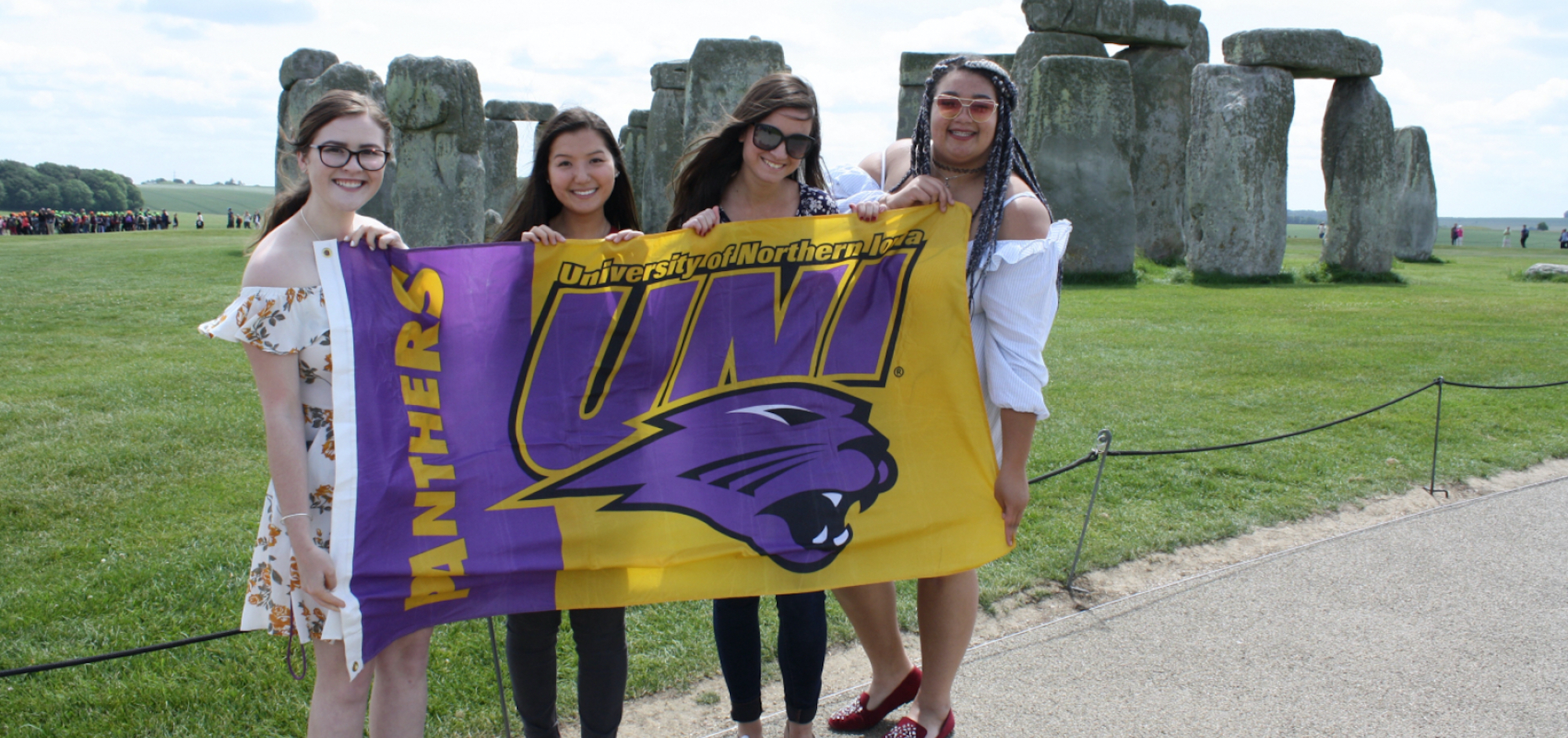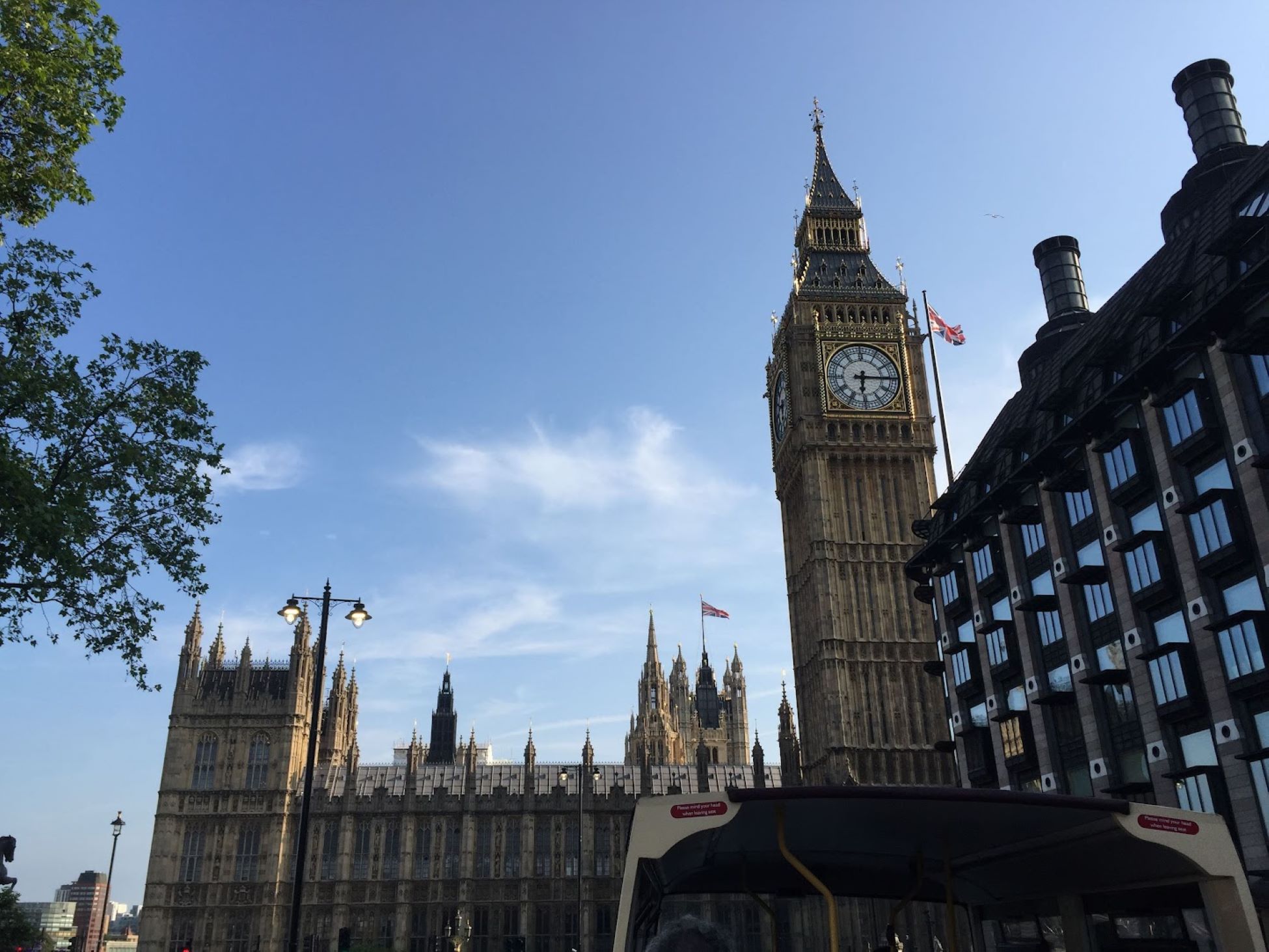Faculty-led Program in London
Daily, we are bombarded with interesting and novel breakthroughs involving claims that may or may not be true. In this age of "alternative facts" and evidence-free assertions, critical thinking is of paramount importance. From our home base in London, we will explore the history of science and pseudoscience in England through visits to research institutes, museums, and historic sites including Stonehenge, Bath, Cambridge University, Freud’s house in London, and Darwin’s house in Downe.
I absolutely would recommend this program to my other peers, it completely changed my life to travel and study abroad. I loved going with my class and having an itinerary because it made the experience once we arrived less stressful by having a plan each day. In addition, it allowed the perfect amount of free time to explore and make connections with my classmates. I loved experiencing a new culture with my peers as well because we could discuss how we were feeling together while we were experiencing things. Having a professor who has been to London before was also comforting for me since I have never been abroad like that before! - summer 2023 participant
I LOVED how the days had equal time with curricular and extracurricular activities, and the destinations we went to covered everything from art to history to science and everything in between; I enjoyed learning alongside my peers, and definitely made friends to last a lifetime! - summer 2022 participant
Dates & Deadlines
App Deadline: Friday, December 15, 2023
Program Dates: Tuesday, May 28 - Wednesday, June 12, 2024
While the study abroad center is no longer accepting applications for summer 2024, this program will be offered again in the future. If you are interested in this program, please fill out the waitlist form below:
Location
This program can fulfill a number of credit options. Students should consult with their academic advisor on how participation in this program would fit into their academic plan. Each student participant will be enrolled into one of the 3-credit courses listed below by Study Abroad Center staff.
PSYCH 3310: Psychology of Science and Pseudoscience (3 credit hours). This course is part of the UNIFI Certificate in Critical Thinking and Information Literacy. It also counts as a UNIFI Connect elective, Psychology elective or university elective. All majors are welcome.
PSYCH 4198: Independent Study (3 credit hours), with instructor consent. Specific criteria must be met prior to approval for enrollment. Specifically, the student must have already completed PSYCH 3310 or CAP 3130 (the other enrollment options for the program).
The purpose of the course is to explore the history of science and pseudoscience from an interdisciplinary, multicultural perspective. Cross-cultural goals include comparing the study of science and pseudoscience in England and the U.S., and learning about current social and cultural issues. Participation in this program requires six on-campus class meetings prior to the travel dates, as well as daily excursions and reflections in England. Please contact the course leader for more information regarding these meetings. Note that the meetings during the spring semester do not correspond to a credit-bearing course. The actual course is scheduled during the summer (first 6-week session). The Study Abroad Center will enroll participants in the summer course during the spring semester.
At the end of the course, students should be able to:
- Distinguish science, pseudoscience, protoscience, and religion
- Describe the scientific method and identify uses and abuses of it
- Define theory, fact, and hypothesis; describe the importance of theories in scientific research
- List common logical fallacies and cognitive biases and give examples of each
- Define anomalistic psychology, give examples of anomalistic ideas, how they are formed, how they are maintained, and how they can be explained and/or refuted
- Discuss and critically evaluate current controversies (e.g., evolution, climate change, vaccines) from multiple perspectives
- Explain how to identify fake news, disinformation, and misinformation in print and electronic media
- Describe similarities and differences in current social, scientific, and political issues in the U.S. and the U.K.
NOTES:
- Students planning to participate in the spring commencement ceremony in May can enroll in this summer term program; however, their degree will not be conferred until the end of the summer term and is contingent on the successful completion of the program and all required coursework.
- Students attending colleges and universities other than UNI are welcome to participate in this program. If you are not currently a UNI student, but would like to participate in this program, please contact the UNI Study Abroad Center prior to starting your program application.
Program Costs
Estimated Program Cost: $6,539*
*estimated total cost of participation, actual amount depends on type of housing accommodation selected, actual airfare purchase price, personal spending habits, and other factors
| Estimated Total Program Cost | $6,539 |
| Estimated U-bill Charges | $4,460 |
| Estimated Out-of-Pocket Costs | $2,079 |
Cost of Studying On Campus at UNI*
*per semester, estimated, will vary per person
| Tuition & Fees | $4,527 |
| Room & Board | $4,580 |
| Books | $400 |
| Personal Expenses | $878 |
| Transportation | $320 |
| Total | $10,705 |
Eligibility Requirements to Study Abroad
The Study Abroad Center reserves the right to determine participants' eligibility to study abroad. Students must have a completed study abroad application, including supportive recommendation form(s). Additionally, students must meet all of the following in order to be eligible to study abroad:
- Have a cumulative 2.5 GPA or higher at the time of application and maintain this cumulative GPA prior to departure and throughout the study abroad process
- If your cumulative GPA is lower than 2.5, submit the following to the Study Abroad Center (103 East Bartlett):
- Letters of reference from two academic contacts (e.g. academic advisor and former or current professor) supporting your pursuit of study abroad. If you are attending a faculty-led study abroad program, one of the letters must be from a course leader. However, if the program has two course leaders, only one of the letters can be from one of the course leaders.
- Must be over the age of 18 years old
- Must meet the course prerequisites (participation in the program is dependent upon meeting these)
- Must be in good standing with the university
- UNI's partner institutions may require additional eligibility requirements to be met, these vary from institution to institution. Please consult with the Study Abroad Center staff to discuss these additional requirements, if applicable.
- Applicants traveling to a region of a country or a country with an overall Travel Advisory Level 3 (Reconsider Travel) or 4 (Do Not Travel) will not be eligible.


